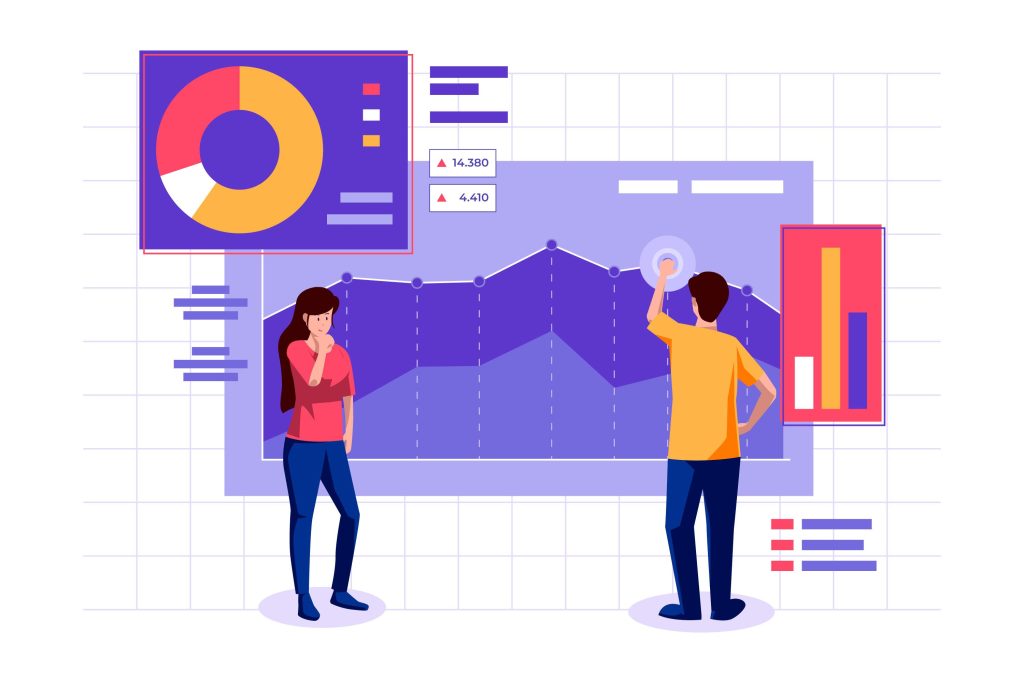Business Analyst vs. Data Analyst: Key Differences Explained
Imagine a company looking to solve significant challenges and uncover new opportunities. Enters the scene, a Data Analyst diving into the numbers to find patterns and insights. Then, a Business Analyst uses these insights to develop strategies, solve problems, and drive success. They both play essential roles in shaping the future of the organization.
In this blog, we will dive into the key differences between Business Analytics and Data Analytics. We’ll explore their roles, required skills, demand, salaries, and educational paths through Data Science Courses. By the end, you’ll have a clear idea of which career path is the best fit for you.
Business Analyst vs. Data Analyst Key Differences
You can think of Business Analyst and Data Analyst as the two sides of the same coin. Thus, they come with their own sets of unique focuses and applications, methodologies, and outcomes. However, they both work in tandem with each other to help businesses leverage the complete potential of data. Knowing the difference between Business Analytics and Data Analytics can help you figure out which career path best suits you.
| Feature | Business Analyst | Data Analyst |
| Definition | Uses data to improve business processes. | Organizes and analyzes data to find insights. |
| Focus | Solving business problems and improving efficiency. | Finding patterns and insights in data. |
| Demand | High and growing. | High. |
| Skills | Mix of technical business skills and effective communication. | Mix of technical data skills (SQL, Python) and analytical thinking. |
| Education | Business-related degrees (BBA, MBA, Data Science Courses). | STEM degrees (Computer Science, Statistics, Data Science Courses). |
| Salary (India) | 6 to 21 Lakhs INR Per Year | 5 -to 10 Lakhs INR Per Year |
Read Also: How to Become a Data Scientist After 12th: Complete Guide to Mastering Data
1) Definition
Business Analyst: Business Analyst is defined as identifying the key areas of improvement for businesses and then making those improvements in practical scenarios. Using various tools (data visualization, reporting software, and data mining), they dig deeper into the data and find ways to boost areas of improvement for businesses, including customer service and sales.
Data Analyst: On the flip side, Data Analyst is about sorting, organizing, and cleaning data to discover hidden patterns and performance-driven insights. Their main focus is on utilizing the potential of Statistics and advanced technologies to derive meaningful conclusions from the vast sets of available data. Even though it might seem less directly practical compared to Business Analytics, Data Analysts use almost the same tools as Business Analysts. These include data visualization and reporting software like Tableau, Power BI, and Excel.
2) Roles & Responsibilities
Business Analyst: Business Analysts act as problem-solvers for businesses and organizations. They thoroughly analyze their ongoing processes and perform design experiments to see what’s working and what isn’t, communicate with team members to get their insights, and come up with success-driven solutions to make things better.
Data Analyst: While Data Analysts act like backend technical professionals to make sense of raw data. As you can see, they dive into the core data by analyzing concepts and methodologies, unlike business Analysts. Using these concepts, they spot patterns, create visuals, and present their findings in a way that’s easy to understand. This helps businesses make smarter and much more informed decisions to solve problems more effectively.
3) Demand
Business Analyst: The demand for business Analysts is on a steep rise as we have entered a new year. While traditional roles like Financial Analysts may have a slow pace, the roles tied to emerging technologies are expected to rise at a high pace in the coming time.
Courtesy: U.S. Bureau of Labor Statistics
For instance, Management Analysts, including Business Analysts, may see an impressive growth rate of 11% from 2023 to 2033—much faster than the average of other occupations.
Read Also: Top Data Science Tools You Need to Know in 2025
Data Analyst: Like Business Analyst, Data Analysts are also in huge demand today. Businesses are relying more and more on data to streamline and boost their performance strategies.
Courtesy: U.S. Bureau of Labor Statistics
Based on the U.S. Bureau of Labor Statistics (BLS) survey, Operational Research Analysts (a sub part of Data Analysts domain) employment may grow by 23% between 2021 and 2031. This growth rate is much faster than all occupational averages—highlighting the Data Analysts’ importance in the 21st century.
4) Skills Required
Business Analyst: Business Analysts require a unique blend of technical alongside interpersonal skills. These include:
- Programming skills
- Proficiency in statistical tools like SPSS, SAS, and Excel.
- Creative and analytical thinking
- Data visualization skills
- Effective communication
- Able to prototype workflows, user interfaces, and algorithms.
- Collaborate with other team members
- Business intelligence knowledge
Data Analyst: However, Data Analysts require a blend of more technical and soft-driven skills. These include:
- Able to manipulate data
- Proficiency in SQL, Python, Excel, and R
- Statistics knowledge
- Database design
- Attention to detail
- Creativity
- Industry-specific knowledge (for instance, basic astronomy knowledge if you are working with space agencies like NASA or ISRO)
Read Also: How to Develop a Data-Driven Mindset: Tips for Aspiring Data Scientists
5) Educational Background
Business Analyst: Most business analyst positions typically require at least an undergraduate degree in either business administration or management. Interestingly, other field professionals, such as software developers or other specific industrial specialists, can also transition into business analyst roles. Most of their skills are somewhat similar and, therefore, can easily be transferable and often align well with the Data Science Course Syllabus. The typical courses include:
- Bachelor of Business Administration (BBA)
- Master of Business Administration (MBA)
- Bachelor of Science in Computer Science
- Bachelor of Science in Statistics
- Master of Science in Data Science
- Master of Science in Business Analytics
Data Analyst: Data Analysts are more technical-oriented (as mentioned earlier in this blog). Consequently, they must possess a STEM (Science, Technology, Engineering, & Mathematics) academic background. They must have undergraduate or postgraduate degrees in Data Science Courses in technical fields, either in Computer Science, Mathematics, Statistics, or Information Management. Employers typically prefer candidates who hold Data Science degrees. These include:
- Bachelor of Science in Computer Science
- Bachelor of Science in Statistics
- Master of Science in Data Science
6) Salary Structure
Business Analyst
| Role | Average Salary Per Annum |
| Business Analyst | 0.6 to 1.5 Million INR |
| Senior Business Analyst | 1 to 2.1 Million INR |
| Business Analyst IV | 0.3 to 1.5 Million INR |
Ref: Glassdoor
Data Analyst
| Role | Average Salary Per Annum |
| Data Analyst | 0.5 to 1.1 Million INR |
| Senior Data Analyst | 0.8 to 1.9 Million INR |
| Data Analyst IV | 1.5 to 1.8 Million INR |
Ref: Glassdoor
Read Also: How will AI & Machine Learning Redefine Data Science in 2025?

Which One You Should Choose: Business Analyst or Data Analyst?
Choosing between Business Analyst and Data Analyst becomes slightly trickier when you have overlapping career goals or interests in both domains. Here are some tips to help you make an informed choice when looking to enroll at Data Science Courses in Delhi:
Choose Business Analyst if you
- Love diving into business challenges and using data insights to solve real-world problems.
- Are good at communicating and collaborating to ensure seamless collaboration with stakeholders.
- Aim to deliver actionable insights that directly influence business decisions.
Choose Data Analyst if you
- Enjoy data analysis, programming, and trends discovery.
- Skilled in SQL, Python, R, and data visualization software.
- Prefer going into the technical side, exploring datasets, and supporting decision-making with in-depth analysis.
Get Started With AAFT!
Both fields offer exciting opportunities in today’s world, which is dominated by data everywhere. Thus, it’s important to weigh your interests and skills and see which role resonates with you and aligns with your broader career goals.
Read Also: How Data Science is Transforming in Every Field?
So, ready to unlock your journey in Business Analyst or Data Analyst with AAFT? Our Data Science Courses are accurately designed to equip you with all the needed skills, knowledge, and tools for success in these trending domains. Whether you aim to solve business problems or uncover data insights, we will help you develop a robust foundation. Take the first step today and turn your dreams into a successful career with AAFT’s Data Science Courses in Delhi!











